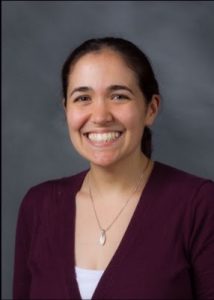November Faculty Spotlight
Women’s Center Faculty Spotlight: Assistant Professor in the Department of Women’s, Gender, and Sexuality Studies, Dr. Kristina Gupta

Q: Tell us more about your role on campus in advocating for gender equity/women and gender issues.
A: As a professor in the Women’s, Gender, and Sexuality Studies Department, I consider it part of my job to advocate for gender equity – as well as other forms of equity – both inside the classroom and out. Of course, these concerns are central in my own courses. I am also currently working with a group of faculty to develop a stronger “cultural diversity” requirement to ensure that all students who graduate from Wake Forest understand systemic inequality and social justice. A few of the other issues I have worked on are sexual assault and relationship violence on campus and caregiving issues (e.g. support for faculty and staff parents and caregivers).
Q: Tell us about future goals or aspirations for yourself or your organization in regards to gender equity and/or women and gender issues.
A: I would love to see the Women’s, Gender, and Sexuality Studies Department grow. I believe we offer students a transformative education that allows them to analyze how power operates in the world as well as encourages them to get involved in social justice activism. I would love for more students at Wake Forest to have the opportunity to take at least one WGSS course during their time here.
Q: What is something you would tell your college-aged self?
A: Ha! I honestly don’t know. I have always been stubborn, so I am not sure I would have listened to my older self. I definitely studied too much in college.
Q: Can you tell us about your recently published work?
A: Right now, I am co-editing a special issue of the journal Feminist Formations on the topic “The Erotics of Asexualities and Nonsexualities: Intersectional Approaches.” The special issue contains a number of excellent articles, so I am looking forward to it coming out soon. My book, Medical Entanglements: Rethinking Feminist Debates about Healthcare, was published in 2019 by Rutgers University Press. In the book, I argue that medical interventions often reinforce social inequality. At the same time, they can make lives more livable. Thus, I suggest that we should more beyond a “for or against” approach to specific medical interventions, instead allowing individuals to make choices about their own use of medical interventions while focusing our activist energies on transforming the medical system as well as the social, political, and economic factors that make medical interventions so problematic to begin with.
Q: What are some of your hobbies?
A: Well, work and parenting take up most of time (along with sleeping – I’ve always needed lots of sleep). My guilty pleasures right now are reading fan fiction and playing Pokemon Go.
Q: Any words of encouragement for others starting their feminist journey/have a growing interest in advocacy work?
A: I think of feminism as not just a political movement or platform but as a way of living in world – ultimately, it is a difficult but rewarding way of living. In terms of activism and advocacy – it is important to be aware that social change takes time and it is never a straightforward path of progress. When I get discouraged, I think about all of the people in the past who have dedicated their time and energy to social justice work, from issues as “small” as demanding adequate ventilation in school buildings to as large as ending slavery and extending the right to vote to previously excluded populations. Collectively, their work has led to major positive changes in society, even if they didn’t achieve all of their goals or maybe didn’t even live to see the fruits of their labor. I think it is also important to understand that activism and advocacy can take many different forms, again, from small-scale interventions to large-scale interventions. Finally, I would say that your own involvement in activism and advocacy can change over time and may wax and wane depending on your life circumstances, and that is totally ok.
